
The deadly sleeping mistake that can trigger heart attack and stroke overnight!

What you do before bed might matter more than you think. Millions of older adults repeat certain nightly routines that feel harmless — a glass of water, a late snack, or the wrong sleeping position — without realizing these small choices could be silently affecting their memory, heart, bones, and overall longevity.
As we age, our bodies become more sensitive to small disturbances. The truth is that many health issues in seniors aren’t only about aging — they’re linked to preventable nighttime habits that disrupt the body’s natural repair processes. Based on insights from Dr. R.N. Veller, here’s what you need to know to protect your health and sleep more safely.
⚠️ The Silent Dangers of Nighttime Habits for Seniors
Aging changes how every system in the body functions. Your heart becomes more sensitive, your lungs may hold less oxygen, and your nervous system slows down. The body no longer regulates temperature, balance, or blood pressure as easily as before.
That’s why some habits that felt fine at 40 can be risky at 65. Recognizing and adjusting these patterns can help you sleep better, prevent falls, reduce your risk of heart problems, and even extend your life.
Below are the most common and dangerous nighttime mistakes — plus simple, science-backed solutions you can start tonight.
📌 Key Takeaways
-
Hydration is crucial, but timing matters — too much water before bed can cause dangerous falls.
-
Late-night eating interferes with digestion, metabolism, and your body’s nightly repair cycles.
-
Sleeping position can affect breathing, circulation, and spinal alignment.
-
A hot bedroom disrupts deep sleep and may increase heart risks.
-
Getting up too fast can cause dizziness and dangerous falls.
-
Loud snoring or breathing pauses could signal sleep apnea — a silent killer.
-
Certain medications before bed can reduce sleep quality or raise health risks.
Let’s take a closer look at each of these — and what you can do instead.
7. Drinking Too Much Water Before Bed

Hydration is essential — it keeps your joints flexible, supports digestion, and helps your kidneys filter waste. But as you age, even something as good as water can become a problem if mistimed.
Older adults often experience reduced kidney efficiency and a smaller bladder capacity. Drinking a full glass of water or tea before bed can lead to multiple bathroom trips through the night — breaking up your sleep and increasing your fall risk.
Imagine it’s 3 a.m.: you’re half-asleep, walking in the dark, your balance is slower, and your vision isn’t perfect. One small misstep can cause a serious fall. In fact, nighttime falls are one of the leading causes of hospitalization among adults over 60.
Interrupted sleep also affects the brain. Poor deep sleep leads to memory decline, slower thinking, weakened immunity, and higher inflammation, all of which contribute to heart disease and cognitive decline.
✅ The Solution: Smart Hydration
-
Drink a large glass of water right after waking up.
-
Sip water steadily throughout the day — not all at once.
-
Reduce fluid intake after 5 or 6 p.m.
-
Avoid liquids for 2 hours before bed.
-
If thirsty, take small sips or suck on ice chips.
-
Avoid diuretics like coffee, green tea, or citrus juice at night.
-
Keep a clear, well-lit path to the bathroom — motion sensor lights help.
-
When you get up, do it slowly to give your blood pressure time to adjust.
6. Eating Dinner Too Late at Night
Late dinners are another hidden threat. As we age, metabolism slows and digestion becomes less efficient. Eating heavy, fatty, or sugary meals close to bedtime forces your body to work hard when it should be resting and repairing.
When your digestive system is active, your heart rate and blood sugar stay elevated, making it harder to fall into deep sleep. Over time, this pattern can lead to acid reflux, high nighttime blood pressure, poor cholesterol control, and morning fatigue.
Research shows that eating within two hours of bedtime may raise your risk of strokes and heart attacks, especially if you already have hypertension or diabetes.
✅ The Solution: Early, Light Dinners
-
Eat dinner at least three hours before bedtime.
-
Choose easy-to-digest foods like soups, cooked vegetables, baked fish, or plain yogurt with nuts.
-
Align meals with daylight hours — eating around sunset supports your circadian rhythm.
-
If you need a snack before bed, pick something light: half an apple, chamomile tea, or a piece of whole-grain toast.
-
Avoid alcohol, sugar, and spicy foods late at night.
5. Sleeping in a Harmful Position
Your sleeping position has more power than you might think. It affects how well you breathe, how your heart circulates blood, and even how your brain clears toxins during deep sleep.
Sleeping on your back can worsen snoring or sleep apnea because gravity lets the tongue and throat tissues block your airways. This reduces oxygen, raises blood pressure, and forces your heart to work harder.
Sleeping on your stomach isn’t ideal either — it twists your spine, compresses your chest, and strains your neck, leading to chronic pain and stiffness. These aches can activate your stress response, disrupting deep sleep.
Over time, poor sleep positions contribute to heart strain, circulation issues, and faster cognitive decline.
✅ The Solution: Side Sleeping
-
The side position (left or right) is best for breathing and spinal alignment.
-
Place a firm pillow between your knees to reduce pressure on your hips and lower back.
-
Side sleeping also supports the brain’s natural cleansing system, helping to flush toxins associated with Alzheimer’s disease.
-
Use a supportive pillow that keeps your neck in a neutral position.
4. Sleeping in a Room That’s Too Hot
A cozy, warm bedroom might sound comforting — but it could be sabotaging your health.
Your body needs to cool down slightly at night to enter deep, restorative sleep. If your room is too warm, this process gets disrupted. Instead of relaxing, your body stays alert, your heart rate increases, and your breathing becomes shallow.
Older adults are more vulnerable to temperature dysregulation, meaning they can overheat faster. A hot room can cause blood pressure spikes, irregular heartbeats, dehydration, and a higher risk of nighttime strokes.
Even mild overheating can reduce deep sleep by 30%, leading to next-day fatigue, poor focus, and irritability.
✅ The Solution: Cool, Comfortable Sleep
-
Set your bedroom temperature between 64°F and 68°F (18–20°C).
-
Use breathable cotton sheets and wear lightweight sleepwear.
-
Replace heavy blankets with several thin ones to adjust comfort easily.
-
Keep a window slightly open or use a quiet fan to improve airflow.
-
Avoid heavy meals and alcohol before bed, as both increase body temperature.
3. Getting Out of Bed Too Quickly
Many nighttime injuries happen in seconds. You wake up, stand too fast — and suddenly the room spins. That dizziness is a warning sign of orthostatic hypotension, a sudden drop in blood pressure when moving from lying to standing.
This is especially dangerous for seniors, since balance and reflexes are slower. A quick rise can cause fainting, falls, fractures, or head injuries — all of which can lead to hospitalization or long-term health decline.
Falls at night are not just scary; they’re one of the leading causes of loss of independence in older adults.
✅ The Solution: Slow and Steady
-
When you wake, sit on the edge of the bed for 30 seconds.
-
Move your feet, stretch, and take deep breaths before standing.
-
Use nightlights to clearly see your surroundings.
-
Keep walkways free of clutter, cords, or rugs.
-
Wear non-slip, closed slippers — not socks or loose sandals.
2. Ignoring Loud Snoring or Breathing Pauses
Snoring is often dismissed as harmless — but it can be an early sign of something dangerous: sleep apnea.
Sleep apnea happens when the muscles in your throat relax too much, blocking airflow for several seconds at a time — sometimes hundreds of times per night. Each episode deprives your brain of oxygen and forces your heart to work harder.
Untreated, it increases the risk of high blood pressure, heart disease, strokes, and even cognitive decline. Studies show that sleep apnea can make the brain age up to three times faster.
Worse yet, most people don’t know they have it — up to 80% of older adults with sleep apnea go undiagnosed.
✅ The Solution: Get Checked Out
-
Watch for warning signs: loud snoring, gasping for air, morning headaches, dry mouth, and daytime fatigue.
-
Talk to your doctor or a sleep specialist.
-
Treatments may include breathing devices (CPAP), position changes, or weight management.
-
Avoid alcohol, sedatives, and heavy evening meals, which worsen airway blockage.
1. Taking Certain Medications Without Supervision
For many seniors, taking medication before bed is routine. But mixing the wrong drugs — or taking them at the wrong time — can be dangerous.
Sedatives and sleeping pills like Valium, Xanax, or Ativan may help you fall asleep faster but interfere with natural sleep cycles. They can cause breathing problems, confusion, poor balance, and dangerous falls — especially in older adults.
Long-term use also increases the risk of memory loss, dependency, and early death. Other medications, such as antidepressants, painkillers, muscle relaxants, and blood pressure pills, can also disrupt sleep or lower blood pressure too much at night.
✅ The Solution: Medication Safety
-
Never start or stop medications without consulting your doctor.
-
Report side effects such as dizziness, confusion, or loss of balance.
-
Ask about natural alternatives like herbal teas (chamomile, passionflower), breathing exercises, or warm baths.
-
If taking blood pressure medicine, check your readings regularly and discuss timing adjustments with your physician.
🌙 Final Thoughts: Small Changes, Big Protection
Aging gracefully doesn’t mean giving up control over your health — it means becoming more aware of your body’s signals. The good news? Most of these nighttime risks are easily preventable with just a few mindful changes.
By adjusting your hydration schedule, eating earlier, keeping your room cool, and paying attention to warning signs like dizziness or snoring, you can dramatically improve your sleep, protect your heart, and strengthen your memory.
Your nighttime routine should help you recharge and repair, not put you in danger. Start with one small change tonight — your future self will thank you.
News in the same category

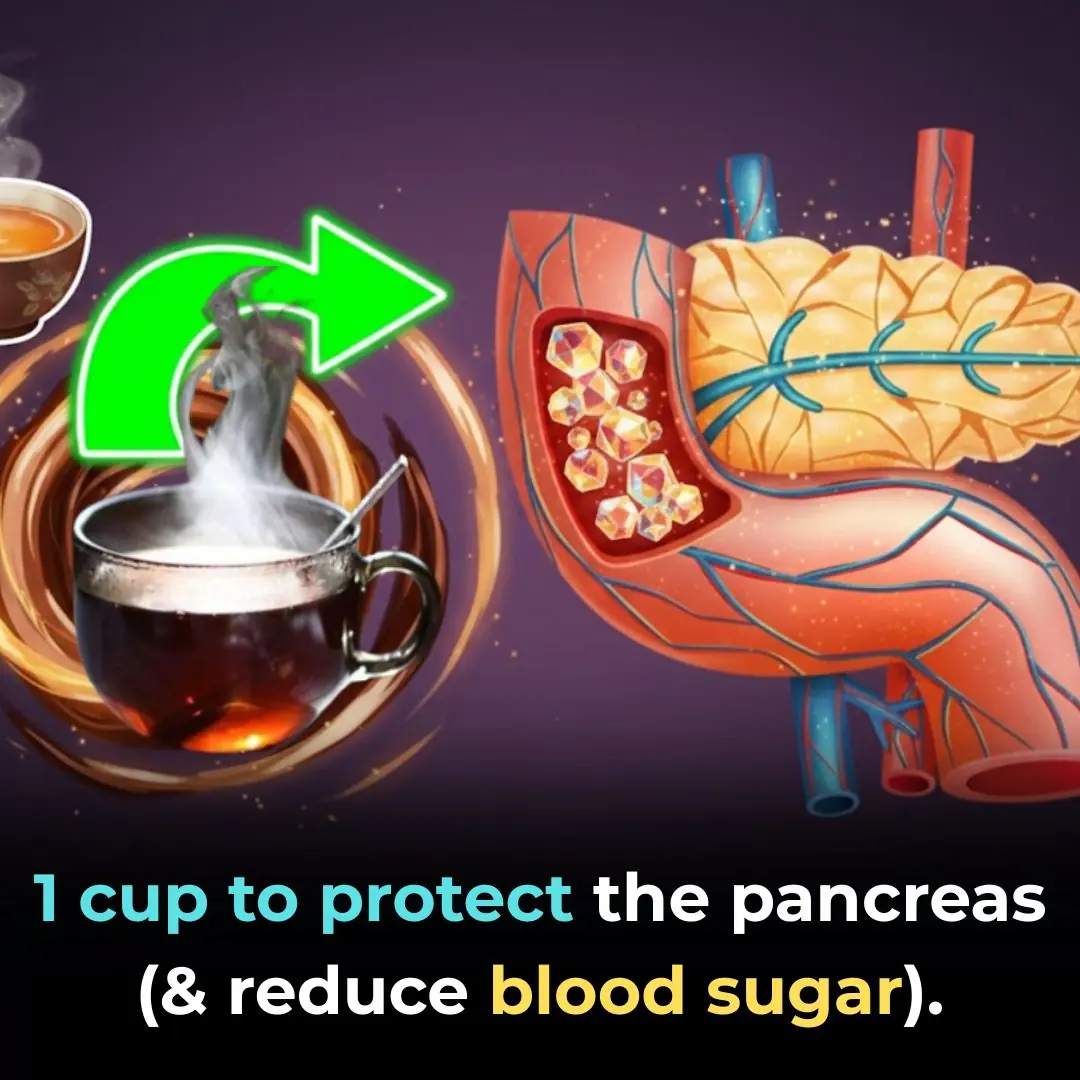
1 cup to protect the pancreas (and reduce blood sugar)

10 Warning Signs of Bowel (Colorectal) Cancer You Shouldn’t Ignore

Coconut Water Found To Lower Blood Pressure By As Much As 71% In Study Participants
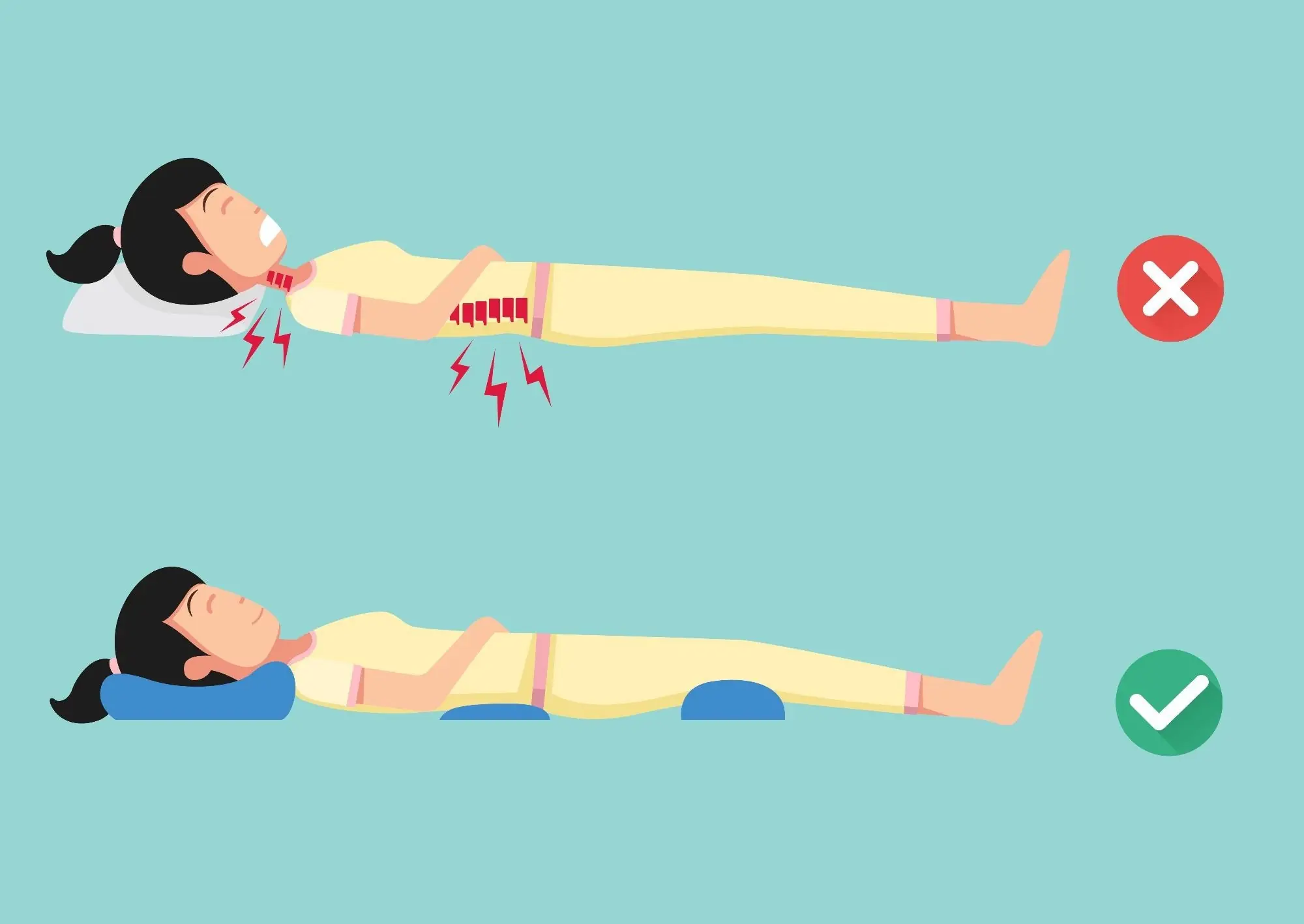
Best Sleeping Positions to Prevent Neck Pain Reflux and Keep Your Heart Healthy

Baking Soda and Castor Oil Can Treat More than 20 Health Problems
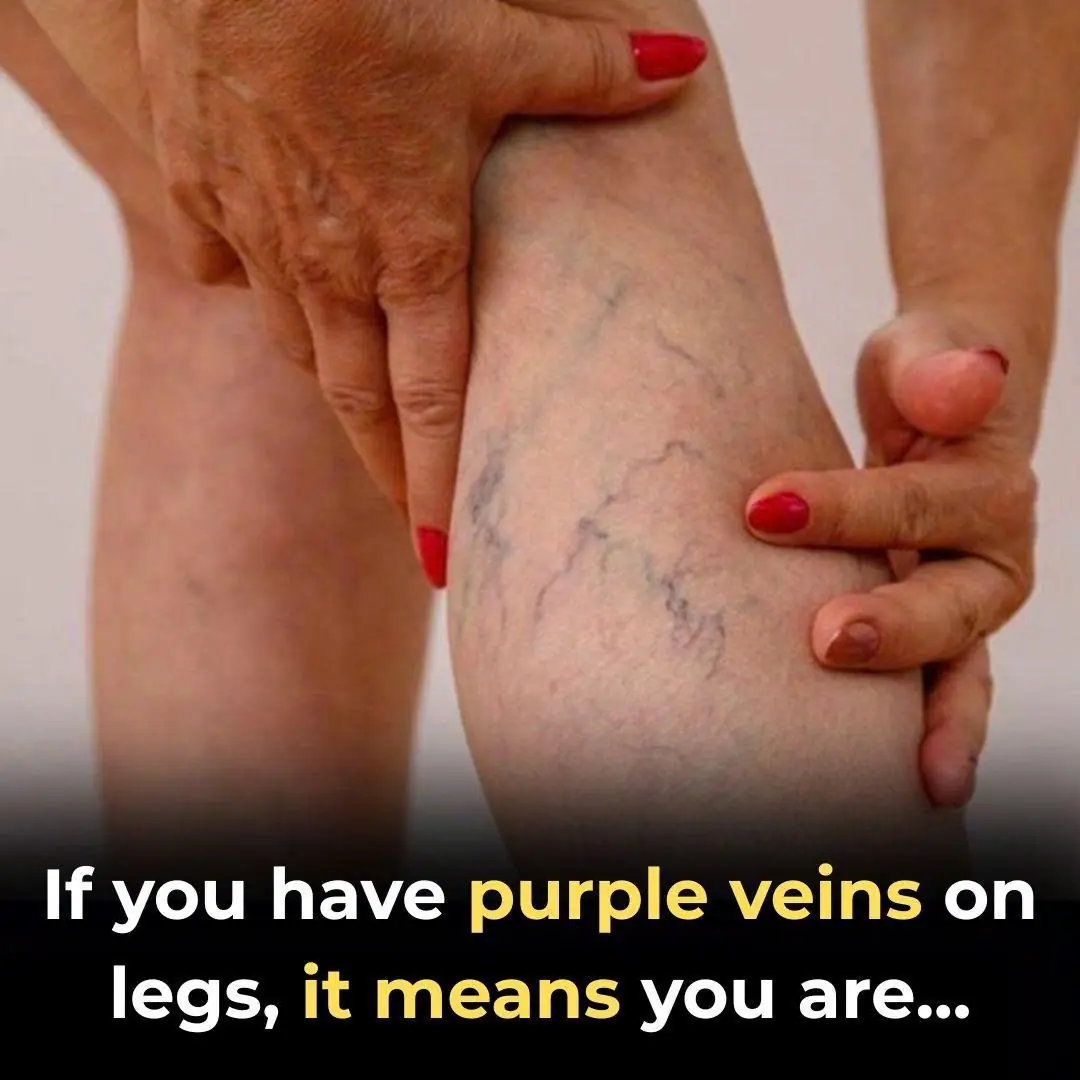
Purple Veins on Your Legs

Why Keeping A Lemon In Your Bedroom Is A Great Idea
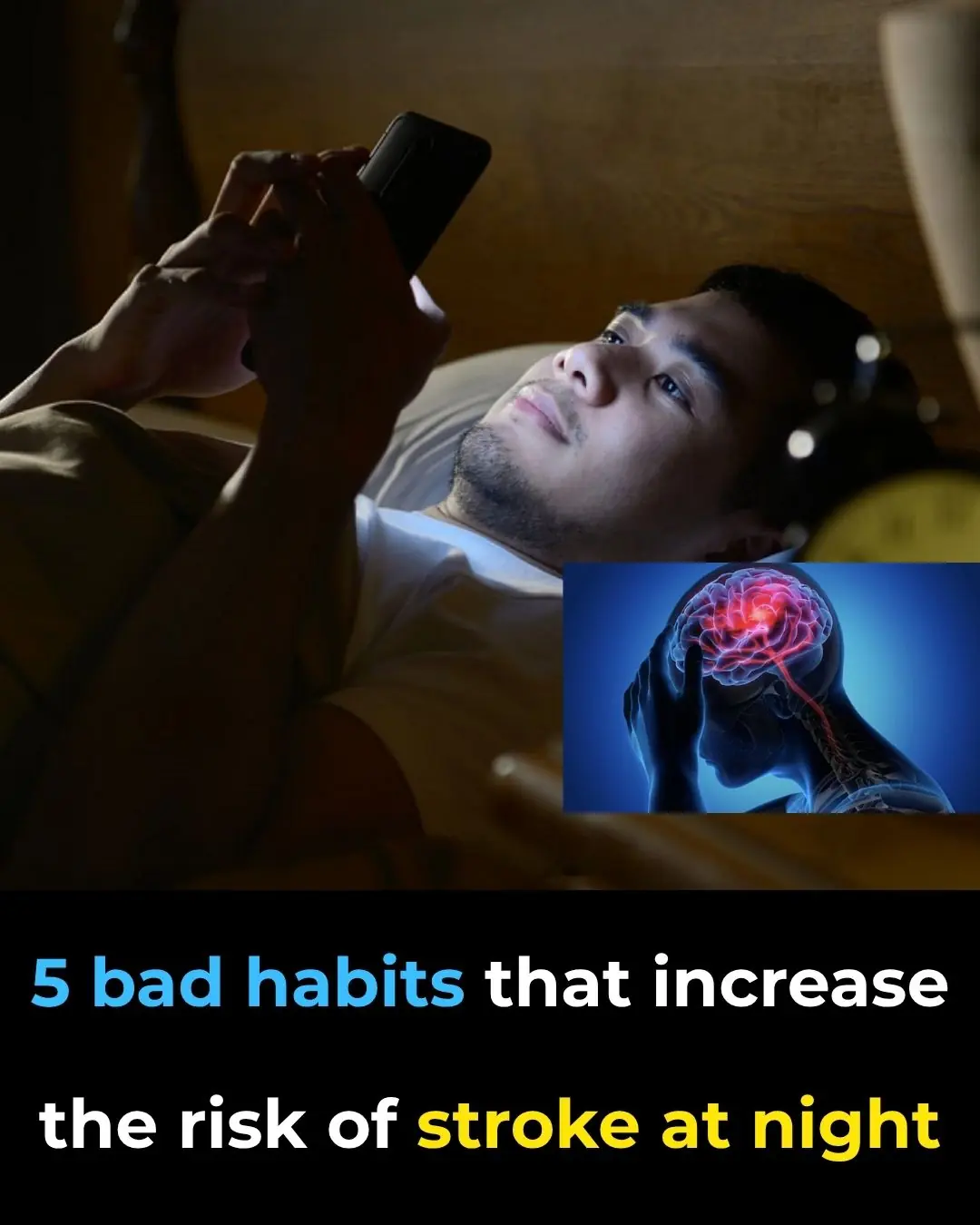
Nighttime Habits That Increase Your Risk of Stroke

4 Types of Shoulder Pain That May Signal Dangerous Cancer — Don’t Mistake Them for Simple Joint Problems
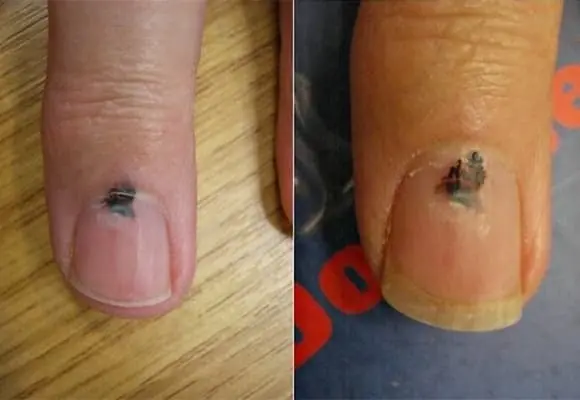
6 Body Parts That Turn Black May Signal Cancer — Don’t Ignore Them

The Amazing Power of Caesalpinia pulcherrima (Peacock Flower)
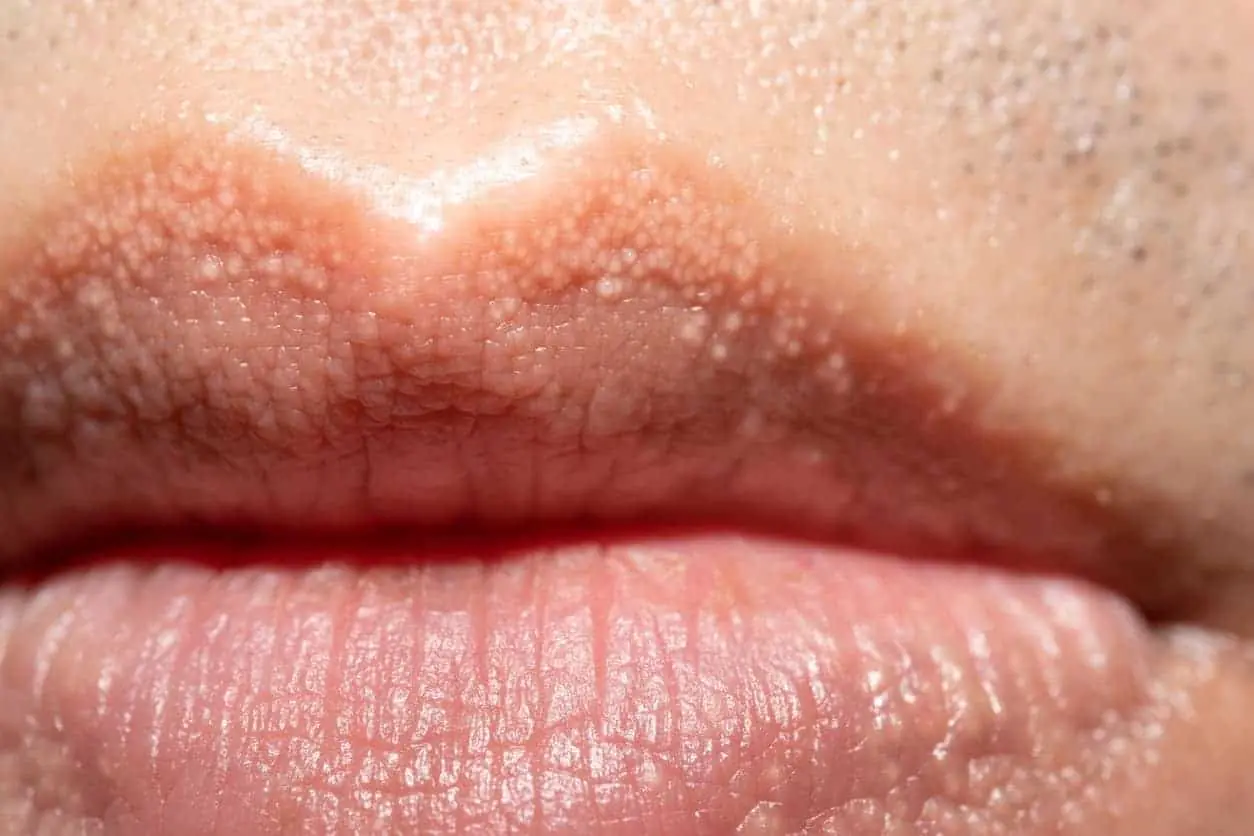
White Bumps or Spots on Lips: Causes and Effective Treatments
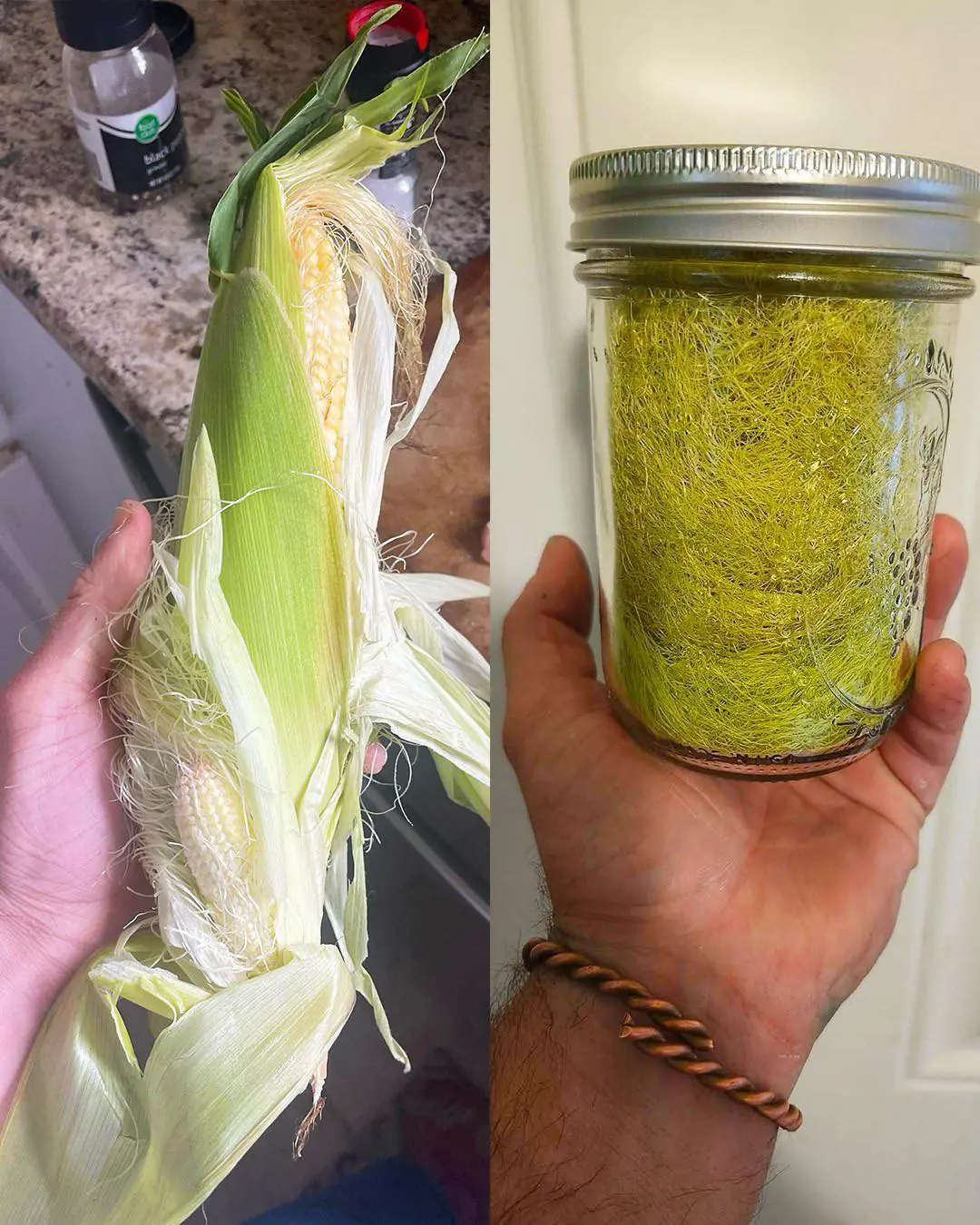
Corn Silk: 30 Health Benefits and How to Use It

Turmeric Dosage: How Much You Actually Need for Arthritis, Cancer, and Other Diseases

Better Than Medicine? The Shocking Truth About Dates & Blood Sugar!
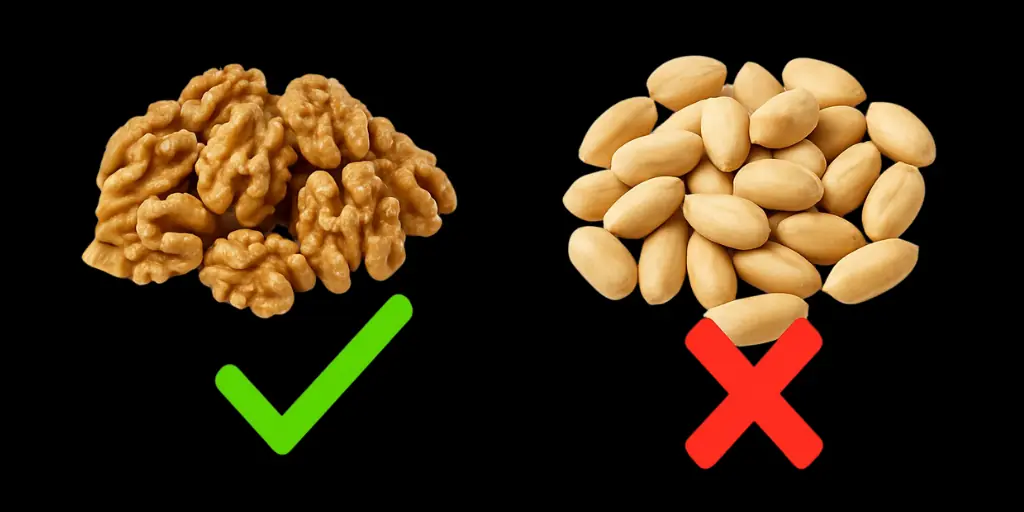
7 Nuts You Should Eat for Better Health (and the #1 Nut You Should NEVER Touch)
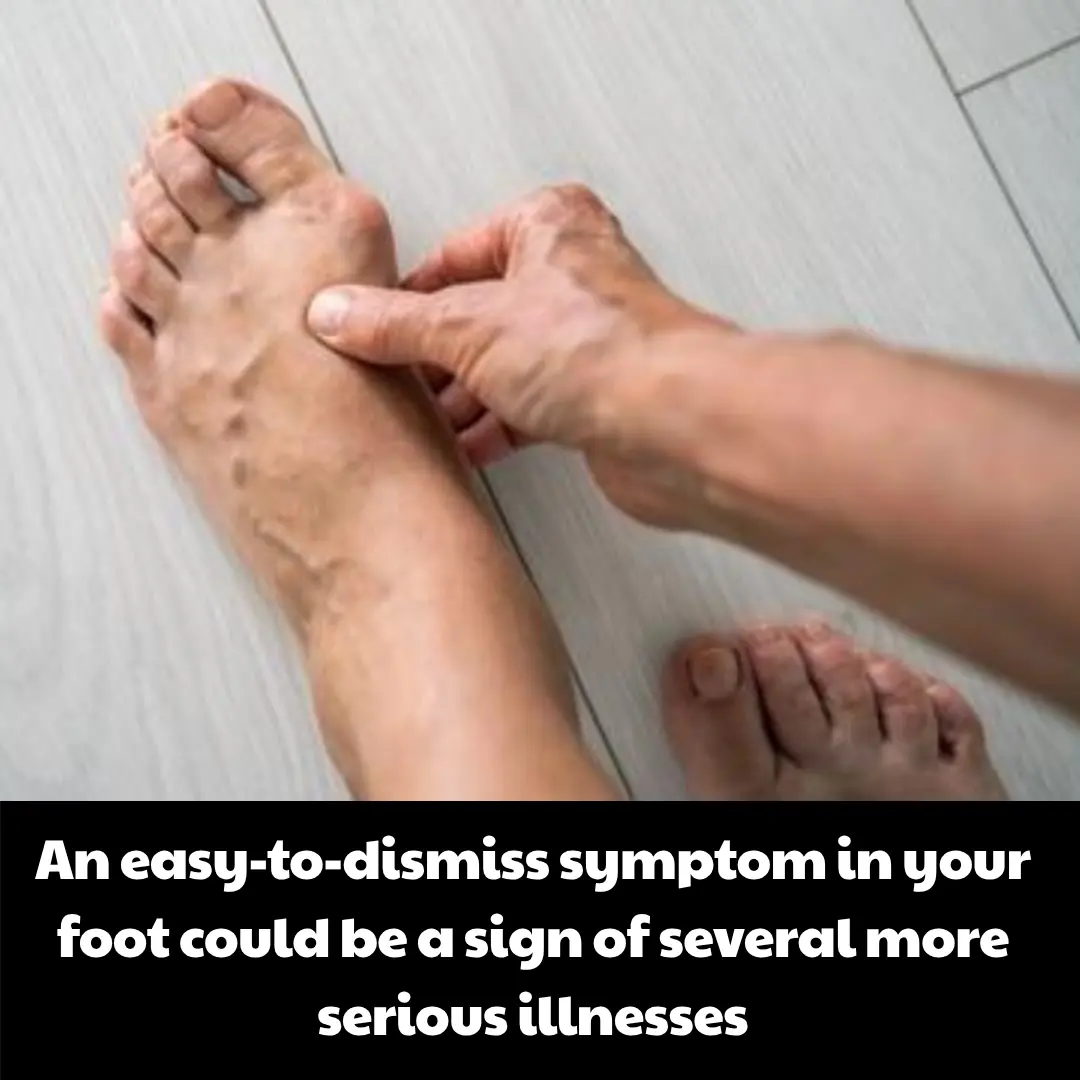
An easy-to-dismiss symptom in your foot could be a sign of several more serious illnesses

Doctor reveals 5 powerful snacks that help your body fight cancer and disease
News Post

This Homemade Coffee & Turmeric Eye Cream Will Erase Your Dark Circles

How to grow clove plant at home – from seed to spice

7 Benefits Of Papaya Seeds & How To Consume Them Correctly

Chanca Piedra (Stonebreaker): Benefits and Uses

Nerve damage? 6 best oils to help repair your nerves

Red Onion for Hair Growth: How This Overlooked Natural Remedy Can Stop Hair Fall and Boost Thickness Fast

Banana and Coffee: Powerful combination with surprising benefits

1 cup to protect the pancreas (and reduce blood sugar)
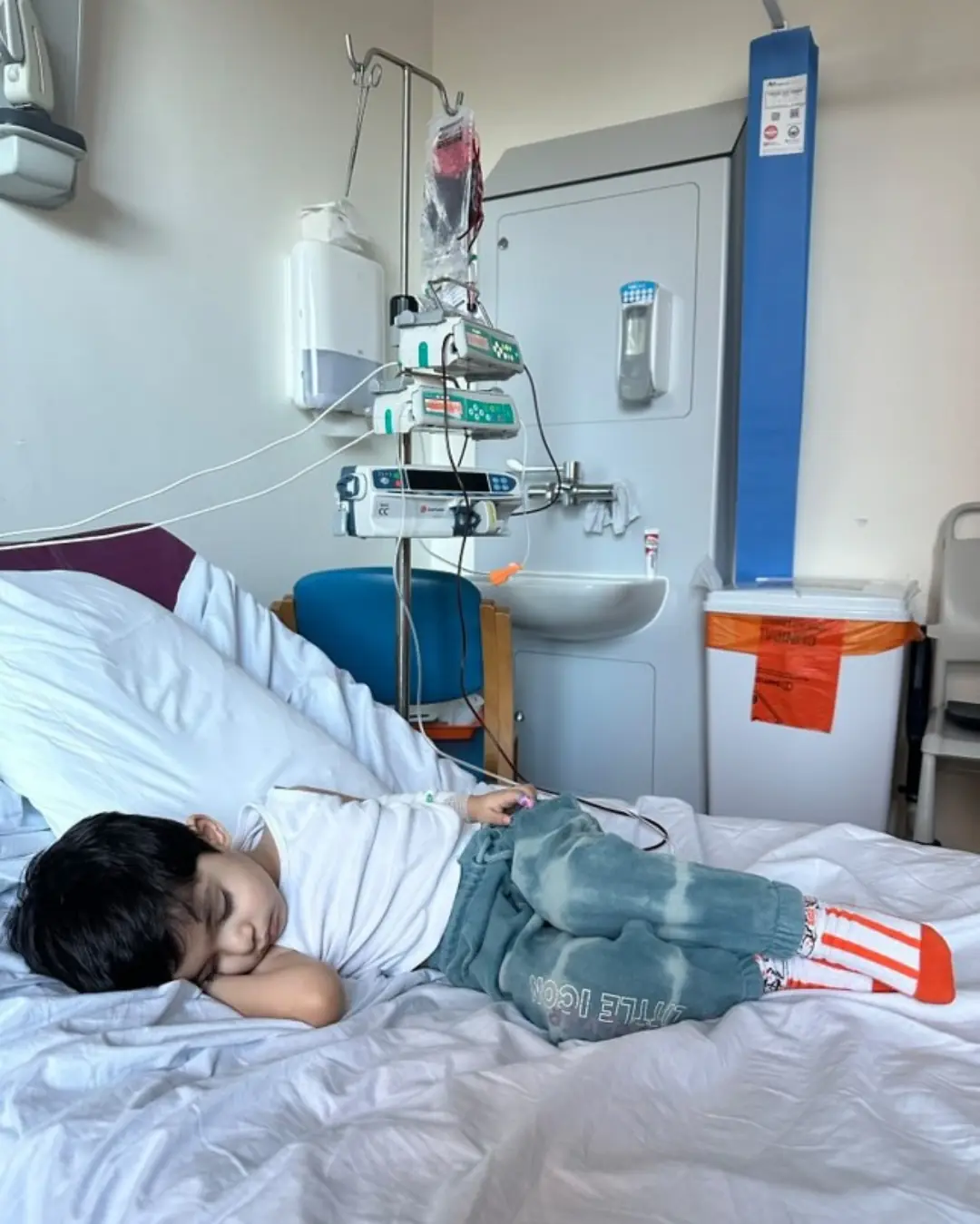
Manraj’s Journey: A Brave Little Fighter Who Beat Cancer

The Day Rick Swope Saved Jo-Jo the Chimp: A Heroic Act of Compassion

A Dramatic Rescue: The Courageous Effort to Save a Mother and Calf Elephant in Thailand

The Orange Cat and the Bears: A Friendship You Have to See to Believe

Little-known wonderful uses of baking soda in gardening
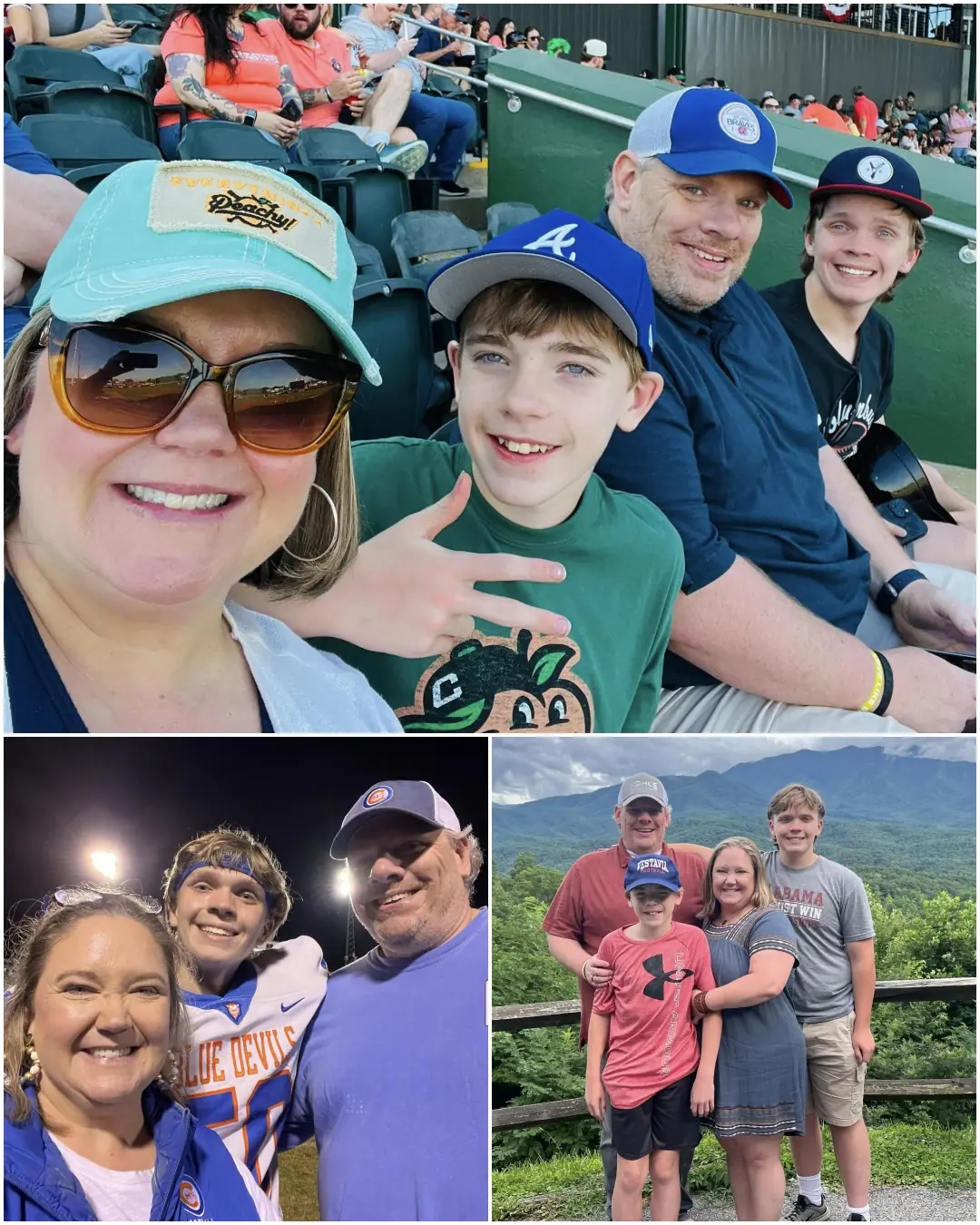
Remembering Tim Franklin: A Husband, Father, and Friend Who Loved With His Whole Heart

Abused Genius Turns King: The Lost Experiment That Became Legend of the Jungle

Why You Shouldn’t Wash Rice in the Inner Pot of an Electric Rice Cooker

Turns out I've been using it the wrong way for a long time

Semper Fi Until the End: Honoring Sgt. Kevin Lloyd, a True American Hero

🥚 5 Simple Ways to Tell if Your Eggs Are Fresh or Rotten 🚫
